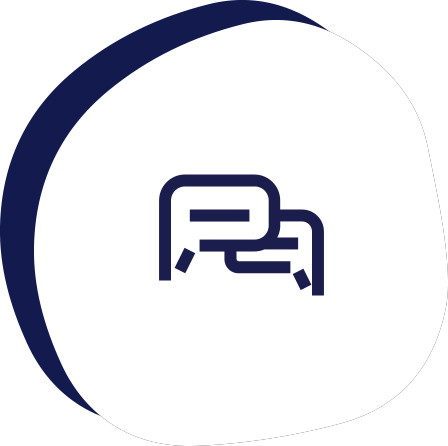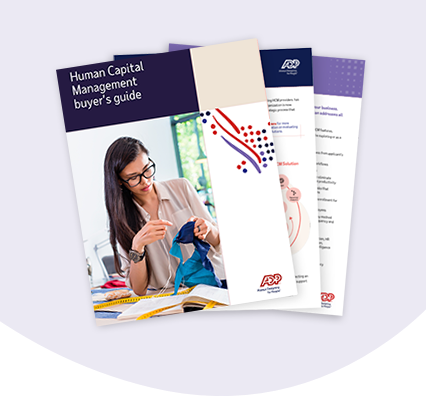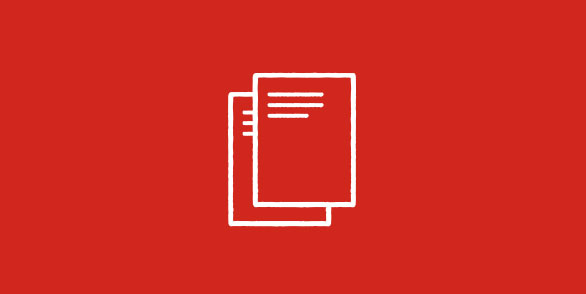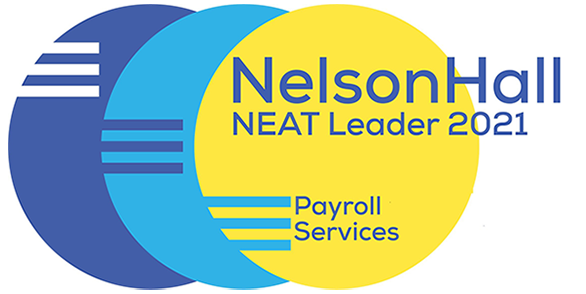
What is human resource management?
HR management describes the approaches involved in optimising a company’s workforce so they can meet their business goals. The term is an abbreviation of Human resource management, and the practice covers many elements including recruiting employees, onboarding, performance, pay, and benefits, through to training, retention, compliance, creating policies, and employee relations.
HR management systems, also known as human resource management systems or HRM solutions, describes the software platforms designed to streamline and automate these various HR processes within organisations. These systems contain a wide range of functions, including applicant tracking, employee onboarding, performance management, time and attendance tracking, benefits admin, and more.
By leveraging these systems, HR staff can focus on other areas that need their human input such as strategic HR initiatives and enhancing employee experience.
Basic HR management solutions may offer services covering recruitment, workplace benefits and payroll, while more advanced software is likely to include talent management, support with international compliance and sophisticated analytics.
Benefits of using HR management
In ever-evolving workplaces, organisations can use HR management solutions to automate tasks and free up the time of HR professionals to focus on more strategic areas. In this section, we explore the advantages of human resource management software in detail.
- Enhanced recruitment processes
With HR management systems, companies can gain access to powerful tools that simplify and enhance hiring processes. While automated applicant tracking systems enable efficient candidate screening, CV sifting, and job posting management; the recruitment cycle can be sped up with streamlined interview scheduling and communication tools that ensure a seamless experience for both employers and candidates. By harnessing these features, businesses are supported to attract talent and to promptly make well-informed hiring decisions. - Effective people management
HR management systems provide comprehensive employee databases, empowering organisations to effectively manage their workforce. These systems offer a centralised platform to store and access crucial employee information, including personal details, performance evaluations, training records, and leave management. By having all relevant data readily available, HR teams can easily track employee progress, identify skill gaps, and facilitate targeted development plans.
Evaluating performance is important because it not only fosters employee growth through constructive feedback, but also serves as a guide for raises, promotions and dismissals. - Optimised workforce productivity
Efficiently utilising the potential of every employee is important for organisational success. HR management systems enable companies in India to optimise workforce productivity in multiple ways. The software facilitates goal setting, performance tracking, and feedback mechanisms, ensuring employees stay aligned with company objectives. Additionally, automated time and attendance tracking minimise the risk of human error and promote accountability. - Higher employee retention
Employee engagement and retention are key factors for building a loyal and motivated workforce. HR management systems offer features such as employee self-service portals, performance recognition tools, and communication platforms that enhance employee engagement. By facilitating transparent and open communication, recognising achievements, and promoting a positive work culture, these systems could contribute to higher levels of job satisfaction and employee retention rates. - Reduced redundancies
HR management systems provide real-time insights into workforce data, enabling organisations to identify and eliminate costly redundancies. By analysing information related to job roles, skills, and workload distribution, businesses can optimise their workforce structure, ensuring efficient resource allocation and making redundancies less likely. - Built-in compliance support
Compliance with employment laws and regulations is crucial for businesses operating in India. HR management systems offer features specifically designed to ensure regulatory compliance. These systems facilitate accurate record-keeping, automate compliance-related processes, and generate reports to assist with audits. By leveraging the capabilities of these systems, organisations can align with employment laws, mitigate risks, and foster a culture of transparency and accountability. - Data-driven decision making
Data plays a vital role in strategic decision-making. Advanced HR management systems gather and analyse vast amounts of employee-related data, generating valuable insights. By leveraging analytics and reporting tools, businesses can make informed decisions regarding talent acquisition, workforce planning, and performance management.

Case Study: Helping Bray Leino with HR management
Bray Leino is a full-service global agency that was founded in 1973 in a rural part of the UK. Their clients include Virgin, Wrigley, Intel, and Royal Mint, while their work spans advertising through to brand activation. When the agency chose to work with ADP, they were going through a time of fast expansion and had 340 employees across six UK sites from Bristol through to Edinburgh.
The Challenges
- Manual processes - With a small in-house HR department, most of the team’s focus was spent on inefficient manual processes such as inputting data, which left little to no time to spend on core HR activities.
- No engagement opportunities - There was no self-service function for managers and employees; plus, no autonomy to update personal data.
- Paper based archives - As all HR data was kept in paper files, any information such as holiday allowances took a long time to find. The paper filing system also made it impossible to compile detailed HR reports.
- Efficiency and engagement - The agency wanted to improve efficiency, increase employee engagement, and eliminate the restrictions and inaccuracies of their previous paper-based system.
The Outcomes
When ADP’s software had been in place for a year at Bray Leino, their HR manager, Gemma Churchill, confirmed that it had made a positive impact on the time the team spent on manual data inputting, “It’s a real benefit that everyone can access the solution at any time with data updated and available in real time. It is now a great deal easier to keep accurate and up to date records.”
The new cloud-based software makes it easy for managers and employees to quickly find the information they need. Staff members can now find all company policy documents and related information as they’re centralised in one location.
The team has been able to customise the user interface and are very happy with the results. A self-service page on the agency’s intranet empowers employees to request time off, report sickness and update personal details. In addition, managers have a dedicated page displaying current information about their team members, giving more accountability and transparency. ADP’s HR management solution fulfilled all the requirements that Bray Leino were seeking, including a high level of customer service.
"We can safely say that ADP’s HR solution has allowed the HR team to focus on more value-added activities, cutting down significantly on administrative tasks. I feel confident that if there were any glitches with the HR solution, I wouldn’t have to try to solve technical problems myself as we trust ADP to address any issues within hours of a call.”
- Gemma Churchill, HR Manager, Bray Leino




